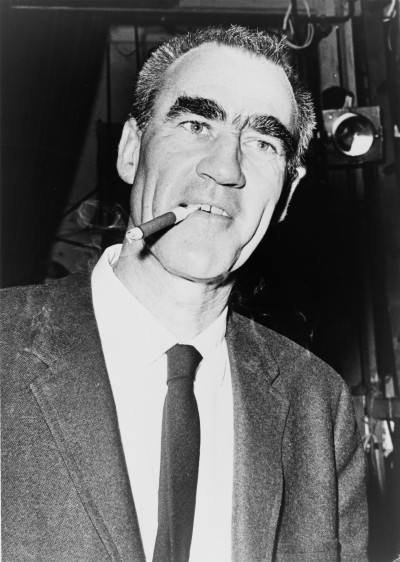William Gibson (William Gibson)

William Gibson (November 13, 1914 – November 25, 2008) was an American playwright and novelist. He graduated from the City College of New York in 1938, and was of Irish, French, German, Dutch and Russian ancestry. William Gibson’s most famous play is The Miracle Worker (1959), the story of Helen Keller’s childhood education, which won him the Tony Award for Best Play after he adapted it from his original 1957 telefilm script. He adapted the work again for the 1962 film version, receiving an Academy Award nomination for Best Adapted Screenplay; the same actresses who previously had won Tony Awards for their performances in the stage version, Anne Bancroft and Patty Duke, received Academy Awards for the film version as well. Arthur Penn directed both the stage and film versions. His Broadway debut had been with Two for the Seesaw in 1958, a critically acclaimed two-character play which starred Henry Fonda and, in her own Broadway debut, Anne Bancroft. It was directed by Arthur Penn. William Gibson published a chronicle of the vicissitudes of rewriting for the sake of this production with a nonfiction book in the following year, The Seesaw Log. His other works include Dinny and the Witches (1948, revised 1961), in which a jazz musician incurs the wrath of three Shakespearean witches by blowing a riff which stops time; the book for the musical version of Clifford Odets’ Golden Boy (1964), which earned him yet another Tony nomination; A Mass for the Dead (1968), an autobiographical family chronicle; A Cry of Players (1968), a speculative account of the life of young William Shakespeare (with Anne Bancroft starring for Gibson once again, this time as Shakespeare’s wife, Anne Hathaway); Goodly Creatures (1980), about Puritan dissident Anne Hutchinson; and Monday After the Miracle (1982), a continuation of the Helen Keller story. His ill-received Golda (1977), a work about the late Israeli Prime Minister Golda Meir became so popular in its revised version, Golda’s Balcony (2003), that it set a record as the longest-running one-woman play in Broadway history on January 2, 2005. In 1973, Gibson published A Season in Heaven, an account of his studies with Maharishi Mahesh Yogi in Punta Umbria and La Antilla, Spain. Gibson married Margaret Brenman-Gibson, a psychotherapist and biographer of Odets, in 1940. In 1954, not long after the couple moved from Topeka, Kansas to Stockbridge, Massachusetts, where Margaret took a position as a psychoanalyst, Gibson published a novel, The Cobweb, set in a psychiatric hospital resembling the Menninger Clinic; in 1955, the novel was adapted as a movie by Metro-Goldwyn-Mayer. Brenman-Gibson died in 2004, leaving behind her husband and their two sons, Daniel and Thomas.
Born
- November, 13, 1914
- USA
- The Bronx, New York, New York
Died
- November, 25, 2008
- USA
- Stockbridge, Massachusetts

